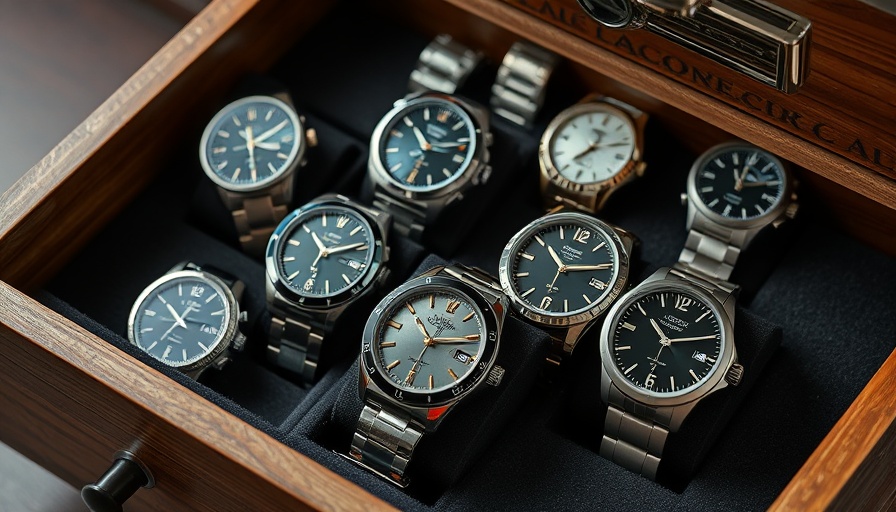
Understanding the Impact of US Tariffs on Watch Prices
The recent implementation of a hefty 31% tariff on Swiss-made watches by the US government has stirred quite the reaction among smaller watch brands. As consumers head to the market for luxurious timepieces, brands like Christopher Ward are taking steps to let their US customers know that prices are about to change. This isn't just a routine price adjustment; it’s a direct consequence of government policy affecting consumer wallets.
Why Are Smaller Brands More Affected?
Unlike larger Swiss manufacturers with ample inventory already in the US, direct-to-consumer brands like Christopher Ward ship their watches as orders come in. This means that any added cost from tariffs is not something they can easily absorb. CEO Mike France articulated this reality when he remarked, "Our base selling price hasn't changed at all. It's the additional taxes... as opposed to tariffs, because I think they are a tax." By framing tariffs as a tax, he highlights how government intervention shifts financial responsibility to consumers.
Market Reactions and Consumer Sentiment
According to reports, the luxury watch market is already feeling the pressure of these tariffs. Mike France mentioned a potential dip in demand, a worry echoed by other brands in the industry. As US consumers grapple with rising prices, will they continue to invest in high-end timepieces? Industry experts suggest that while some will remain loyal to their favorite brands, a segment may shy away from purchases until market stabilization occurs.
What This Means for Future Sales Trends
This situation presents an opportunity to discuss broader market trends where luxury goods intersect with economic policies. For discerning consumers, understanding these changes is vital, as it could redefine their purchasing habits. One potential outcome is more consumers gravitating towards mid-range brands that offer similar aesthetics and functionalities without the high price tag.
Broader Implications and Future Insights
The implications of these tariff-induced price changes extend beyond just watches. They pose broader questions about how trade policies affect consumer behavior across various sectors. As we venture further into an era of potential economic shifts, it begs the question—how will consumers prioritize spending in a world where luxury has an additional cost? Additionally, will these tariffs permanently redefine consumer relationships with brands in the luxury sector?
Taking this time to reflect on watch brands' responses to tariffs can allow consumers to become more informed when making future purchases. Knowledge is empowerment, especially when navigating a landscape shaped by fluctuating economic policies.
Ultimately, while tariffs might pinch consumer pockets today, they also prompt an evaluation of brand value—how much are consumers willing to pay for their desired product and the ideals attached to it? As consumers consider their next luxury purchase, it’s invaluable to remain aware of how business decisions intertwine with market regulations.
 Add Row
Add Row  Add
Add 




 Add Row
Add Row  Add
Add 

Write A Comment